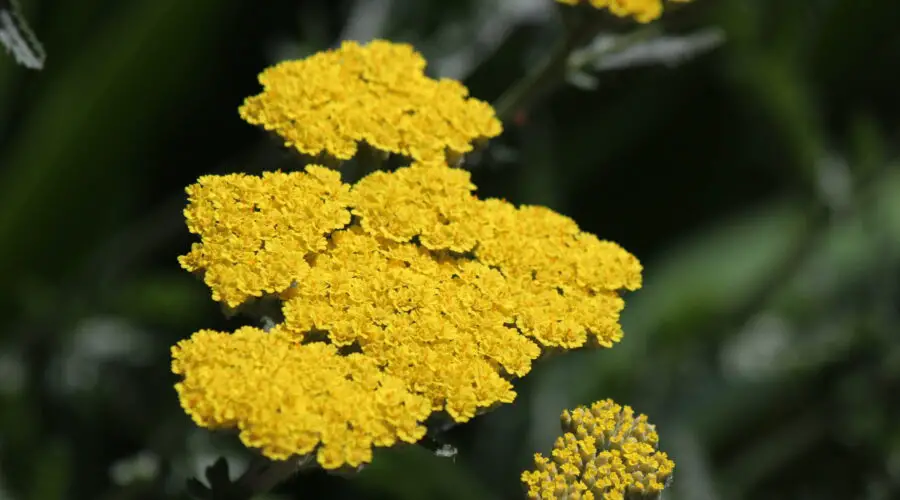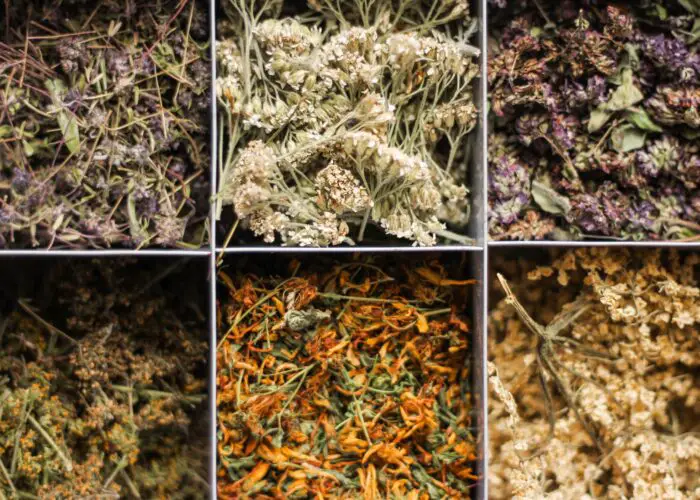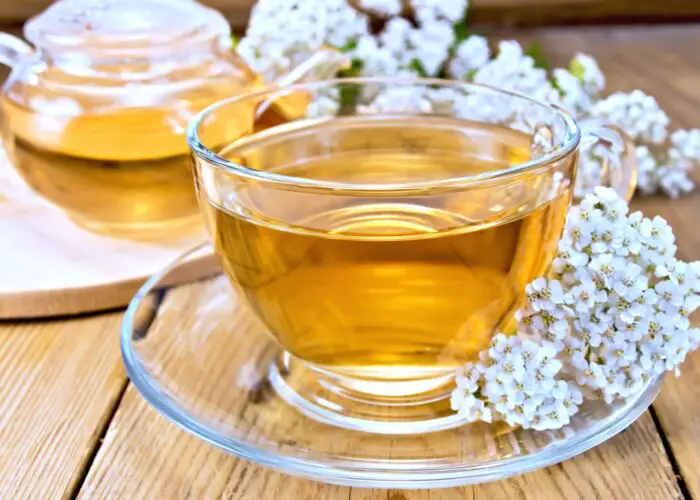The Healing Powers and Symbolism of Yarrow
Humans have depended on plants from the very beginning of their existence. The importance of plants is well known to us. They not only act as a decorative items in our household, but also provide various health benefits. They have various types of medicinal properties and other health benefits, and some of them are much more beneficial than others. Today, more and more people are becoming aware of the healing benefits of plants and their importance for our health. When we talk about medicinal plants that are highly beneficial for the body, Yarrow is one that comes to our minds.
What Does Yarrow Mean?
The common name “Yarrow” generally refers to the Achillea millefolium, but may also be used for other species within the Achillea genus. The name itself is a corruption of the Anglo-Saxon name for the plant – “gearwe”, which means literally “completeness” or “effective”.
Achillea is a genus of more than 100 species of flowering plants in the family Asteraceae, native to temperate regions of the northern hemisphere. It can be found growing in grasslands, meadows and by the roadside. The genus was named after the ancient Greek hero Achilles.
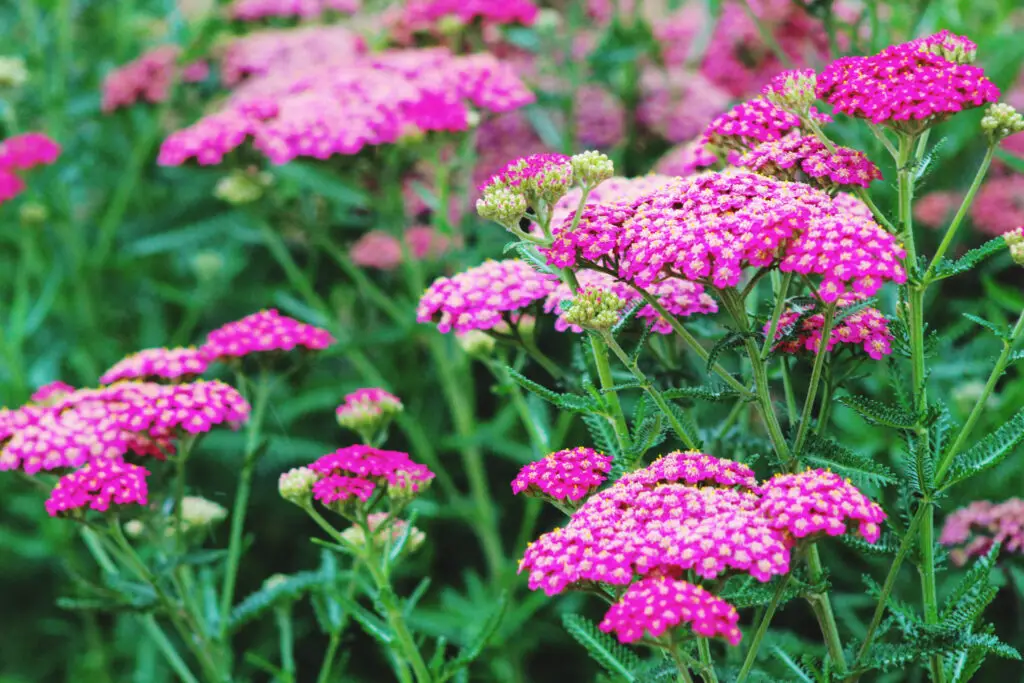
The Legend of Achilles
In Greek mythology, Achilles was a powerful hero of the Trojan War (around 1200 B.C.) and the greatest warrior on the battlefield at Troy. His mother was the goddess Thetis and his father was the mortal Peleus. Achilles was born mortal so his mother dunked him into a magical river Styx that made his entire body immortal. However, she gripped him by the foot so tightly that the water never touched his heel. As a result, Achilles was invulnerable everywhere but at his heel where his mother held him. Achilles survived many battles, until he was shot one day by a poisoned arrow in his heel. He was hit on the only vulnerable spot on his body and he died.
The legend states that Achilles used Yarrow to heal his soldiers who were wounded in battle. Yarrow gave the Achilles its protective powers to make him invincible wherever the herbal bath had penetrated his skin. In turn, Achilles healed his soldiers’ wounds after battle with this plant. Yarrow has been used in many battlefields to treat injured soldiers, which led to the nickname “Soldier’s Woundwort”.
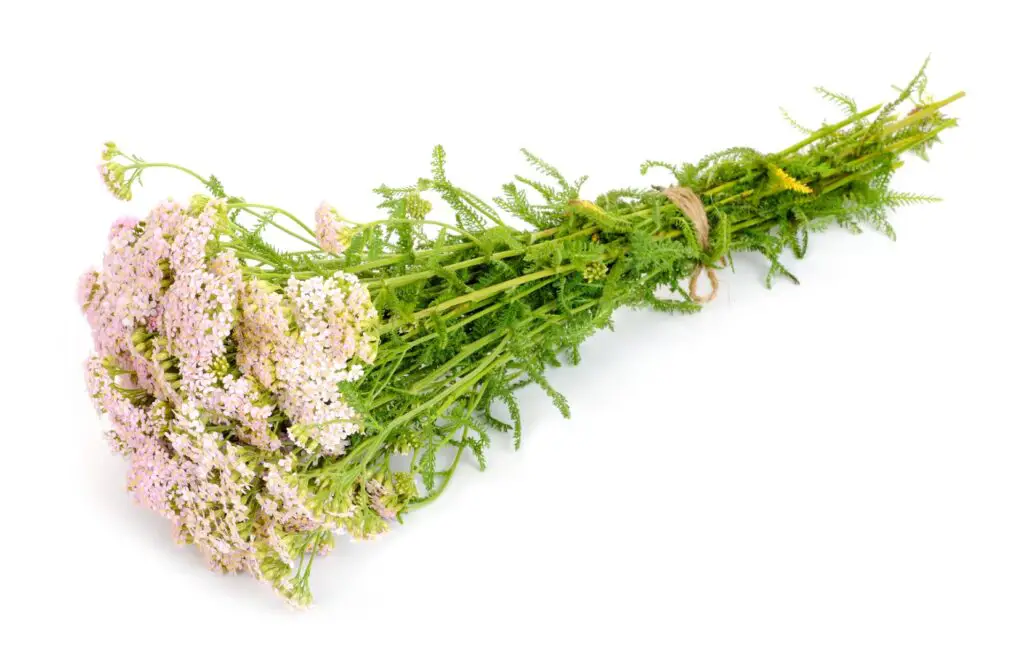
Yarrow and its Medicinal Benefits
Yarrow is one of the world’s oldest medicinal plants and one of the most widely used medicinal herbs today. Its medicinal value has been respected since ancient times, due to its therapeutic benefits and ability to rejuvenate the organism. Both flowers and leaves have been employed in herbal medicine for a variety of purposes.
Yarrow has many beneficial properties including anti-inflammatory, antibacterial, analgesic, antitumor, antispasmodic, antirheumatic, antioxidant, antiseptic, anti-spasmodic, astringent, antiulcer, choleretic, diuretic and haemostatic activities. The plant is available in different forms such as tea, powder, cream, ointment and oil. It has a wide range of applications and is a common ingredient of various cosmetic products.
Wound Healing
Yarrow is known as a first aid remedy for cuts and wounds. The results of different studies have proven that Yarrow is effective in treating wounds, including moderate burns. As a wound healer, its main use is for treating bleeding, lacerations and bruises. It has a long-standing reputation among herbalists for its ability to slow and stop the flow of blood. It forms a protective covering over the wound and stimulates the blood platelets to initiate the process of blood clotting to prevent further blood flow. The plant is commonly known as “Soldier’s Woundwort”, due to its ability to close wounds and stop bleeding.
Coughs, Colds, Fevers and Headaches
Yarrow has been used medicinally for coughs, colds and fevers. It calms inflamed bronchioles and helps relax muscles tense from coughing. It will reduce fever by encouraging sweating, releasing toxins and increasing urinary flow. Yarrow also helps to ease headaches and migraines. It’s a nice plant to use at the end of the day to help you relax before bed.
Digestive Problems
The plant has been used to treat digestive problems due to its heavy concentration of flavonoids. It helps fight digestive issues such as ulcers and stomach pain. Its antispasmodic properties make it useful for gastrointestinal issues like bloating, diarrhea, flatulence and cramping. Furthermore, its antioxidant properties prevent free radicals and protect our digestive organs from oxidative damage caused by free radicals.
Neurological Disorders
The plant has also been used to reduce symptoms of certain brain disorders including multiple sclerosis, epilepsy, encephalomyelitis, Alzheimer’s and Parkinson’s diseases.
Anxiety and Stress
It may also help reduce symptoms of anxiety, stress, depression and insomnia. A 2012 study published in the Journal of Ethnopharmacology found that Yarrow has sedative and anti-anxiety effects after both short-term and long-term administration to subjects.
Blood Pressure, Circulation and Cardiovascular Support
Yarrow is rich in Potassium, which helps in reducing the blood pressure, which in fact makes the heart work less and helps in circulation. It is a natural remedy for hypertensive conditions, as it acts to lower blood pressure by dilating peripheral vessels.
Women’s Health
Yarrow maintains a normal menstrual cycle by balancing the inflammatory response and easing menstrual cramps. Due to its regulating action on endometrial blood flow, it is effective in either lessening heavy menstrual bleeding or in stimulating the uterus to bring on menstruation by increasing muscular activity to the uterus. It relieves painful menstruation and strengthens the complete reproductive system of the female. The plant is also helpful for treating mastitis, a painful condition that sometimes develops when breastfeeding.
Skin Conditions
Yarrow prevents various types of skin related issues, due to the presence of antioxidant and antibacterial properties. The results of the studies show that Yarrow possesses anti-inflammatory agents that have a positive impact on the skin pH and moisture content. It may help treat widespread skin conditions as well, including rashes, hemorrhoids and broken skin.
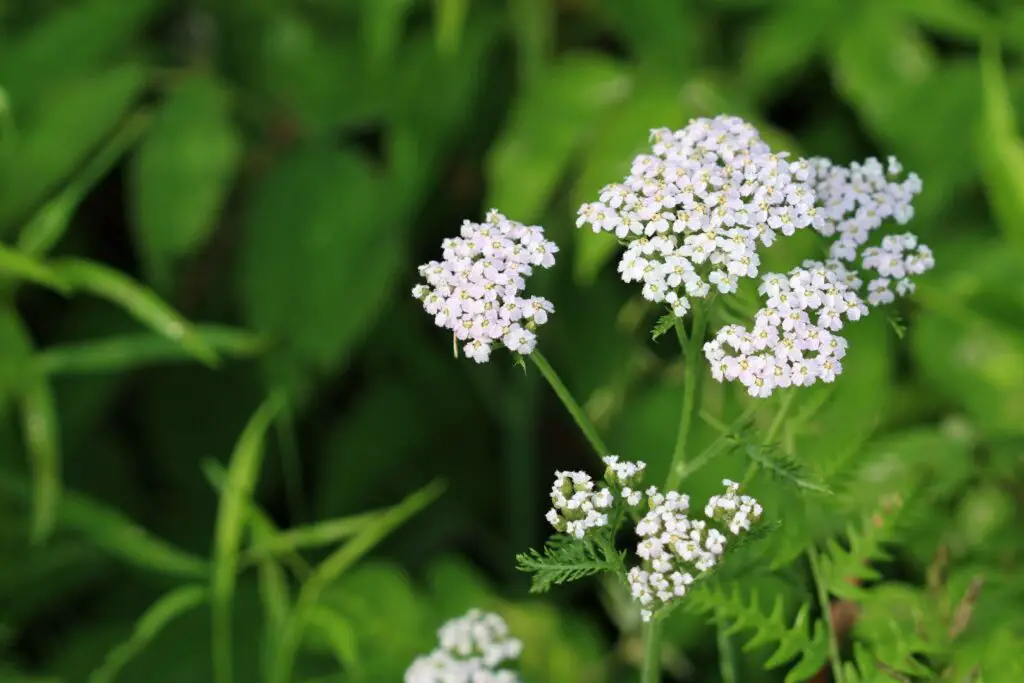
The Magic Properties of Yarrow
Throughout history, Achillea was used in religious and ritual purposes against negative energies and evil. It was used as an amulet or talisman to fight demons or to exorcise evil spirits.
An ancient Asian saying states that „Wherever Yarrow grows, one need not fear wild beasts or poisonous plants“. This saying refers to Yarrow’s ability to repel harmful insects, but also to avoid evil spirits.
In ancient China, Yarrow sticks were used as a divination tool to reawaken the spiritual energy.
In many parts of Europe Yarrow was believed to protect against all evil and to ensure success and good luck. Many people used to hang Yarrow around their house, where it remains to protect the household from disease and other misfortunes.
In Ireland, it was said that young girls would cultivate a Yarrow and subsequently place it beneath their pillow so that they would dream of their future love.
What Does Yarrow Symbolize?
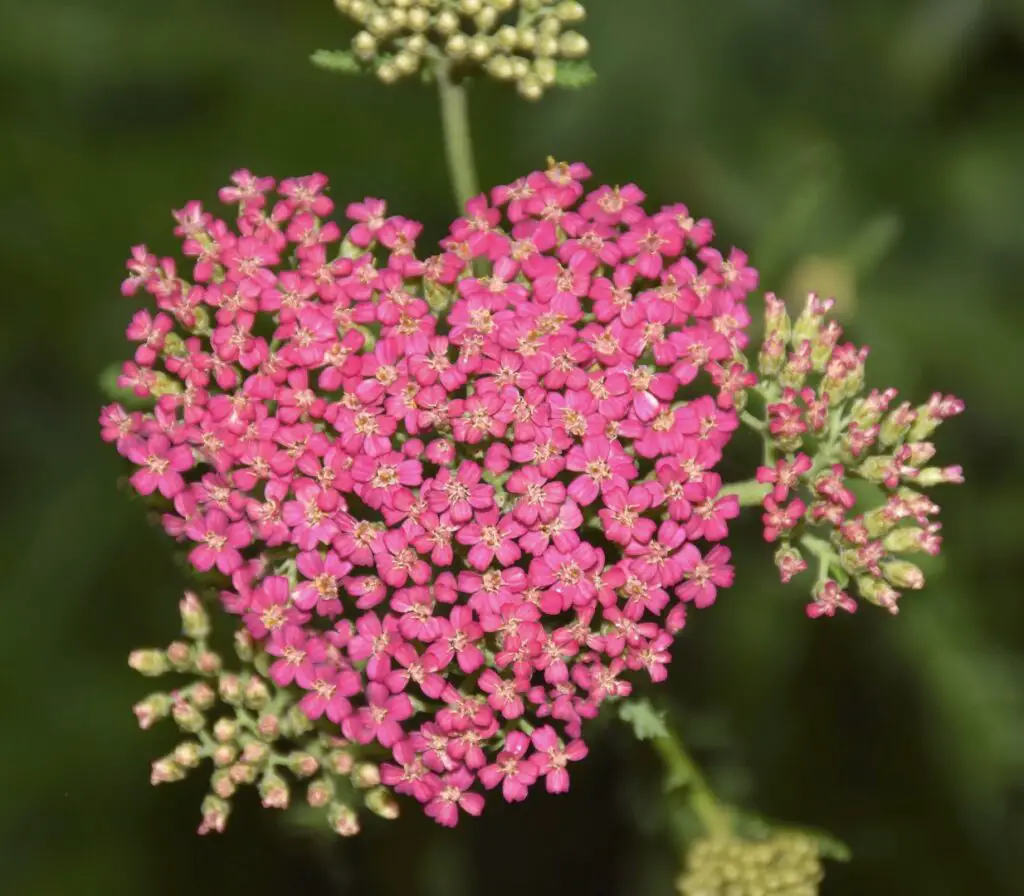 Yarrow symbolizes healing and protection, but can also represent success and good luck.
Yarrow symbolizes healing and protection, but can also represent success and good luck.
First of all, it symbolizes healing and protection, likely derived from its actual physical healing properties. Yarrow is known to protect us from all forms of evil and negative influences. It reminds us to protect ourselves and not allow anyone to mistreat us.
This plant is believed to bring good luck and prosperity, so it is an ideal present for someone who has just started with a new business. It also makes a great gift to celebrate the success of a friend who has been struggling.

